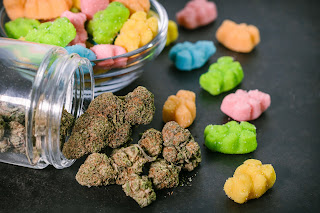March is a
big month for poison control. Throughout March, the Texas poison centers will
participate in educational events in schools, libraries, and online. They will
also celebrate a significant week, Poison Prevention Week, March 20-26, 2022. This
time of year is a great reminder to become better informed about keeping
yourself and others safe from unintentional poisonings.
As we focus
on ensuring that our families and ourselves do not get unintentionally poisoned,
now is a great time to take a walk around your home and see if it is poison
safe! In this blog, we will share a few tips to keep your home safe at all
times of the year.
First, when
we think of poisons, we usually think of dangerous chemicals or items you might
find under your kitchen sink or in the garage. The poison centers get calls for
all types of unintentional poisonings, whether from a bite or sting, a
medication mix-up, or a plant. There are so many different calls that come into
a poison center. While thoughts of accidental poisonings can be scary, the
poison control toll-free helpline (1-800-222-1222) is there when you need it
the most.
Essential
Facts and Tips to Remember
· The most common exposures are to
medicines, plants, pesticides, and cleaning products in children six and under.
· Child-resistant packages do NOT mean
childproof. Most two-year-olds can open a child-resistant container in 4 to 5 minutes
or less. It is best to keep medicines locked up and away and out of reach for
children.
· Calling 1-800-222-1222 from
anywhere in the United States will connect you to a local poison center. The
poison centers are available 24/7.
· Never refer to medicine
(prescription, vitamins, or otherwise) as candy, as children may mistake tiny
pills or medication in gummy or candy form as actual candy.
· Check furnaces annually. Make sure
carbon monoxide detectors are in the house and checked multiple times a year.
This is especially important for the winter months.
· Stay out of wooded overgrown areas. This will help to prevent insect stings,
snake bites, or coming in contact with a poisonous plant.
· Remind grandparents and other
caretakers to poison-proof their homes before bringing little ones over.
If you or
someone with you has been unintentionally poisoned, remember first to remain
calm. Then call the toll-free Poison Help line right away at 1-800-222-1222.
Stay on the phone with the poison control specialist and follow all the
instructions. For more information on accidental poisonings and what you can do
to protect yourself and your loved ones, please visit the Texas Poison Center
Network website at www.poisoncontrol.org.





